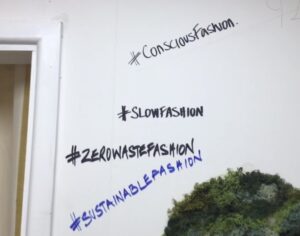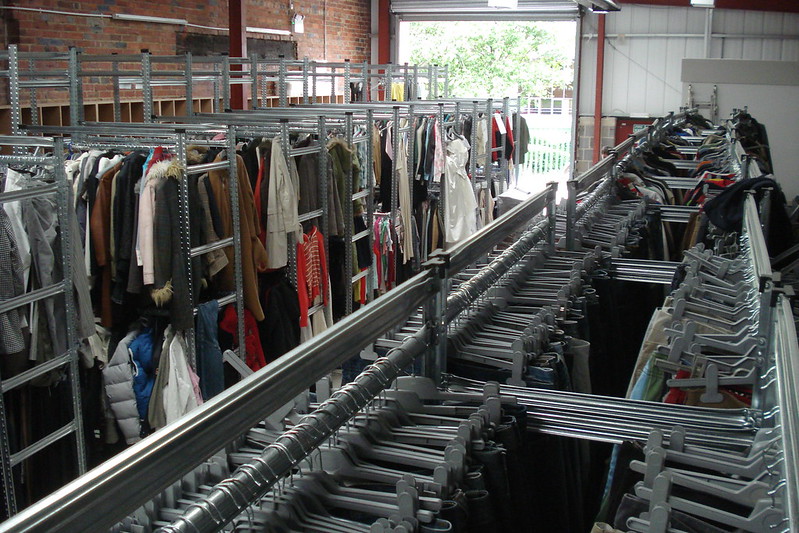Why climate change should make your reconsider your Fashion purchases
Fast Fashion is how most of our clothes are now made a method that quickly mass produces items which has resulted in increasing build up of garments in landfill. The average person in the UK only wears an item ten times before it is discarded.
Most purchases have moved online this means the of clothing is now being produced at lightning speed and costing usually less than a few pennies to make.

How much of an issue is the industry?
The Fashion industry is responsible for about 8-10% of global carbon emissions, nearly 20% of wastewater and sucks up more energy than both aviation and shipping combined.
The world uses an estimate of 80 billion pieces of clothing ever year, which has increased by 400% in just two decades.
We should be aware that if we continue in our ways with fast fashion by 2030 they will have grown their carbon emission release by 50%, which would be a shocking increase.

More alarming facts on fast fashion include extending the life of pre-existing clothes by just nine months would reduce carbon, water and waste footprints by 20-30%.
Is it time we reconsider?
The average clothing company creates more than a million garments per day, do we really need multiple companies producing this volume of clothes when it has such a damaging effect on our planet?
Do we need as many clothes as we individually own? Most peoples answers will be no, some more than others but we are conditioned to believe with social media and our online shopping habits has meant we are going way overboard with mindless consumption.
Pressure from online advertising and influencing has hypnotised people into thinking it’s the norm to buy a new dress for every night out or feel a slight embarrassment wearing the same coat all winter.
This ridiculous and unachievable societal standard has severely impacted the environment.
Who should take responsibility?
So are we to blame? I don’t believe it’s a matter of blaming any individuals who have been unconsciously conditioned into believing this consumption is normal.
However we are starting to see way more education and people advocating for change, but these huge companies for example Shein and Pretty Little Thing, are mass producing garments that people will see as ‘micro-trends’ in a couple of months.
Tik Tok saw a surge of many people doing huge hauls where they unpack tons of items they’ve bought from a fast fashion company, something we have seen for a number other platforms of social media such as YouTube or Instagram, we’ve been consumed by mindless buying especially in the fashion world for years. Our wardrobes are getting larger, much like our landfill.
@heal.the.worldd 😔 #stopfastfashion #fastfashion #climatechange #globalwarming #global #warming #childlabor #fy #foryou #fyp #healtheearth ♬ Space Song – Beach House
What makes content seen on Tik Tok different is more people are speaking out on the effects of fast fashion and using their platforms for advocation of slow fashion. This includes re-wearing ‘dated’ or ‘uncool’ items and much encouragement around vintage and charity shopping.
What can we do?
Experts have said that it’s almost impossible to make fast fashion and sustainability work together, no fashion produced at speed is good for the planet and will just contribute to the environmental downfall. The only alternative we have is a circular economy for textiles, meaning we wouldn’t be investing in production of garments instead ways of restoring them.
Many social media influencers are making sustainable fashion their whole brand or account.
One of the biggest advocates and creative with making content is Venetia La Manna who uses her platform to protest, educate and help people with sustainability especially focusing on the fast fashion industry.
A detailed video she recently uploaded on the issue of fast fashion and influencer partnerships:
Individually we can get involved in creating a more circular fashion industry by reselling, clothing swaps, garment repair and up-cycling.
Supporting small and local businesses, learning how to be ‘savvy’ when shopping second hand can land you with much better quality items and allow you to enhance your personal, original style. Another sustainable option is renting clothing items such as dresses or suits for events.
We can have the ability to reject fast fashion and hopefully global laws will help us see the industry slow down and decrease.
Featured image: allispossible.org.uk
